Association Zadrugarstvo was founded by families of people with developmental disabilities from Kragujevac to improve the quality of their lives through inclusion in work programs.
With the support of their community and the Association Naša kuća, they founded the first social enterprise in Kragujevac, Zadrugarstvo, which employs people with developmental disabilities and produces handmade paper from recycled cigarette packs. They recently started making products from this paper, and the first product created in their workshop are New Year's calendar.
Katarina, the coordinator of the workshop, Ana, assistant in work integration, and Tamara, president of the Association, told us more about the work and mission of the Association, the importance, and functioning of the social enterprise, ways of support, and plans for the future.
How was the Association Zadrugartstvo created? How did your mission develop?
Tamara: Association Zadrugarstvo was founded at the end of 2021 to start the first social enterprise in Kragujevac to train and professionally hire adults with developmental disabilities. Our mission is reflected in the inclusion of people with disabilities through inclusion in work programs. For the first half of the year since the foundation of the Association, we were engaged in advocating the idea of social entrepreneurship. We tried to bring the community closer to the need for such an initiative in Kragujevac. In the summer, we launched a crowdfunding campaign via the website Donacije.rs to provide funds for equipping the inclusive workshop so that our workshop could start working in October. Today we can proudly say that Zadrugarstvo is the first social enterprise in Kragujevac that advocates the principles of social, economic, and ecological sustainability.
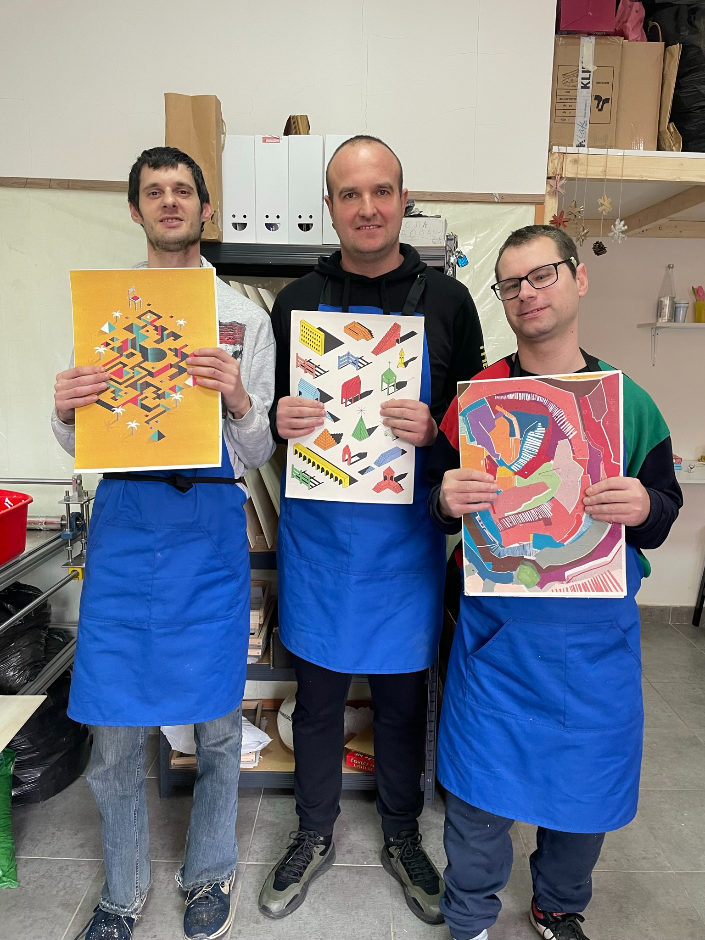
What was your motivation for working in the non-profit sector?
Katarina: My personal motivation was the desire to make a difference and encourage others to do something useful for their community.
Ana: Recognizing an innovative idea in your local community is simple, and supporting it is even simpler. Considering that I am a psychology student, it is not necessary to emphasize that I am particularly interested in the destigmatization of socially sensitive groups and people with mental disabilities. At the Zadrugarstvo, I was particularly attracted by the skill of combining the most current topics, among which social entrepreneurship, environmental awareness, and the work integration of people with developmental disabilities stand out.
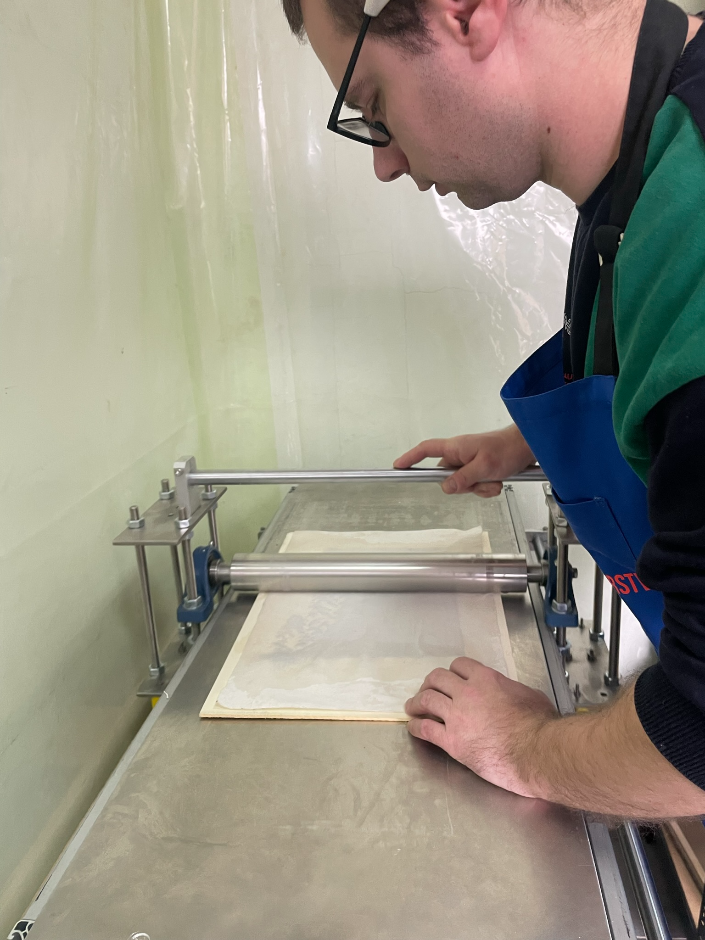
How is the Zadrugarstvo financed? Which types of donors do you cooperate with, and in what way? In what ways can those who wish to support the work of the organization?
Tamara: Zadrugarstvo is extremely proud of the successfully implemented thirty-day campaign, which represents the source of all the Association's current financial resources. The campaign was launched in mid-July to provide funds for equipping the paper production workshop and financial resources for the first six months of operation. Therefore, Zadrugarstvo, through social networks, mobilized a significant number of people from all over Serbia, whose donations made it possible to start the workshop.
The first year is always extremely difficult for project funding, so we rely more on individual donations. In March of this year, we are launching the Club of Friends of Zadrugarstvo to achieve cooperation between donors, young local designers, and our social enterprise. Namely, we gathered ten young, established designers who will print their graphics on our handmade paper. In addition to the workshop, the Zadrugarstvo will also have a small gallery shop, where their graphics will be sold. Donors, and members of the Friends Club, will have the opportunity to participate in the work of the Association and will receive certain benefits on all our products. In addition to membership in the Friends Club, the community can support our work by purchasing our products or donating used cigarette packs, which we will use to make new paper.
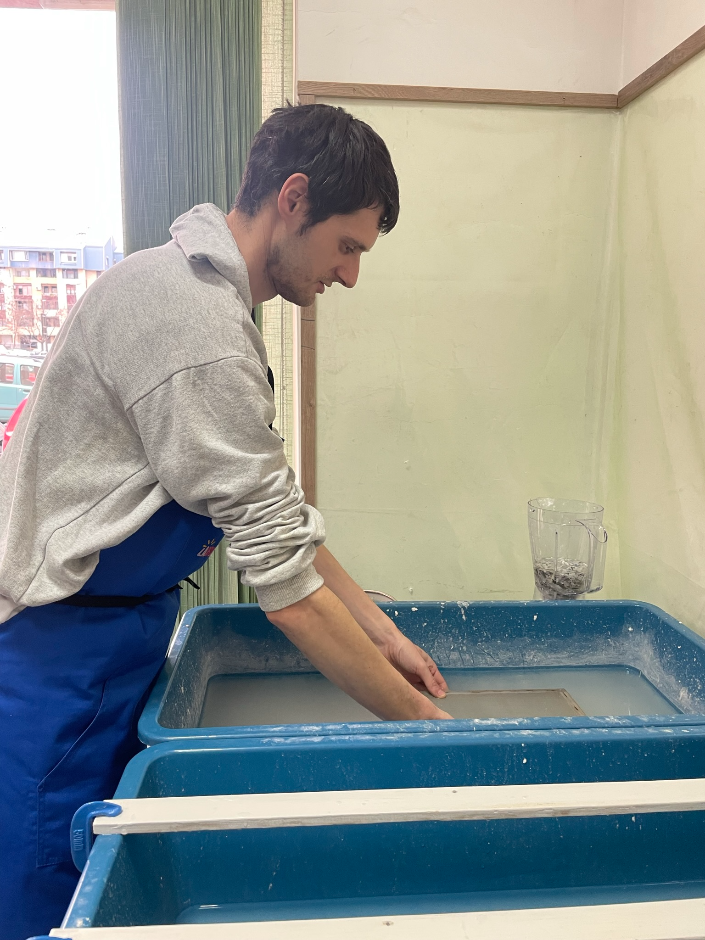
What activities are you most focused on right now? What are the most important plans and goals you will realize in the future?
Katarina: The most important goal in the future is to include more users from various socially sensitive groups and for our workshop to be an inclusive place where everyone will feel accepted, safe, and motivated. We want to encourage more young people to develop their skills and become economically independent.
Ana: The long-term goal of the Association is undoubtedly reflected in sustainability. We implement our program to develop a sense of empathy and mutual tolerance among workshop users, encouraging cohesiveness among them, preventing their stigmatization, and combating social exclusion. The goal is to train users to navigate everyday social and emotional challenges outside of the workshop.
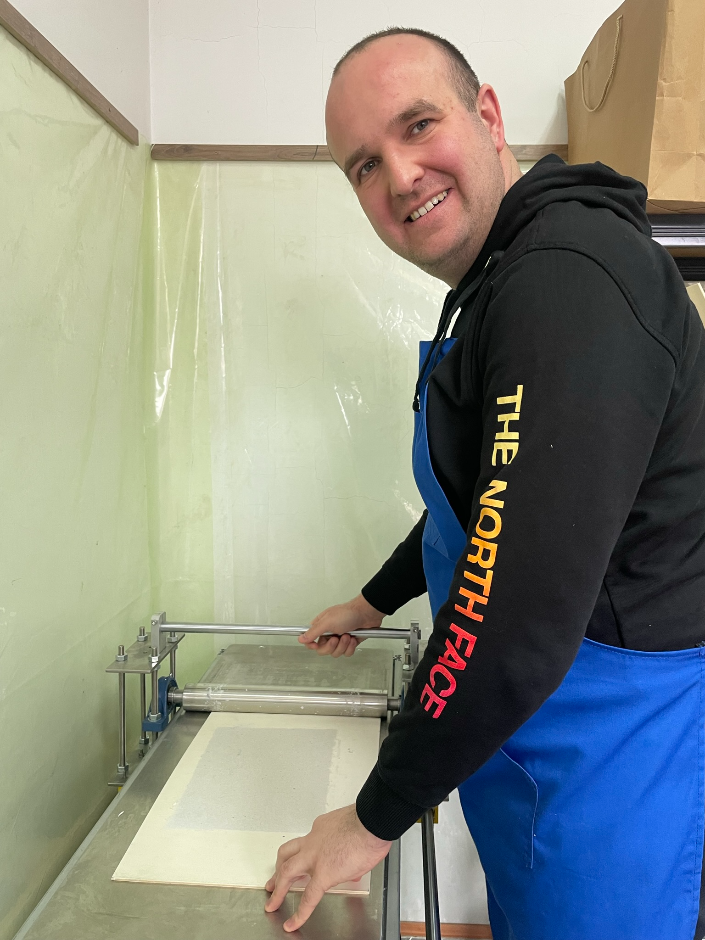
How does the social enterprise Zadrugarstvo work? How did you develop the idea to produce handmade paper from recycled cigarette packs? How many people are engaged, and what are the plans for further work, growth, and development?
Ana: Zadrugarstvo responded to Kragujevac's lack of social protection services. The Labor Law does not recognize persons with developmental disabilities. Thus they are deprived of the opportunity to work and achieve their goals, which can lead to neglect of cognitive functions, underdevelopment of motor skills, and impaired social interactions. We want to support them, to create a safe environment where they can be trained and engaged, improve their existing skills, acquire work habits, and achieve financial independence.
Tamara Popović, the founder of Zadrugarstvo, recognized the Association's Naša kuća example of good practice and thus came up with introducing the citizens of Kragujevac to the concept of social entrepreneurship and manual paper production. Naša kuća has been successfully producing paper from used cigarette packs for years, and the satisfaction of their users with the program encouraged us to think about cooperation with Our house (Naša kuća) and create a similar workshop in Kragujevac. Today, Zadrugarstvo has three permanent users, and we are actively working on expanding the capacity and including other socially sensitive groups in the work of the Association.
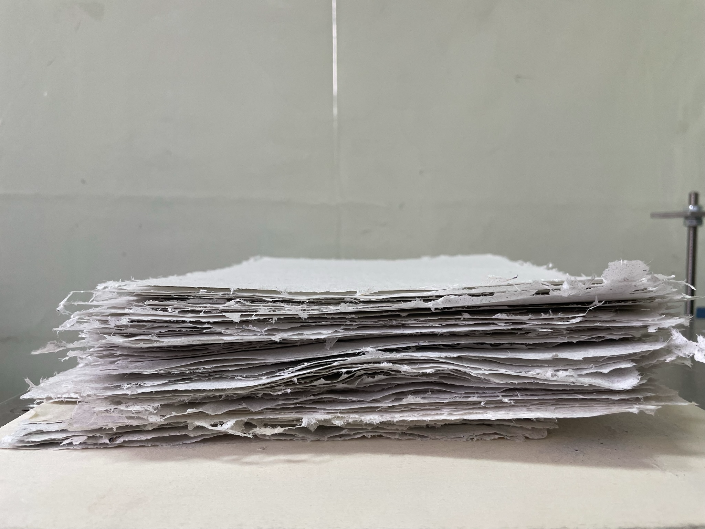
How do you involve the community in your work, and what does that bring you?
Ana: In addition to the support in the donor campaign, the local community, through the collection of waste material, dramatically participates in the recycling process. Every week, Zadrugarstvo collects and processes around 300l packs of cigarettes. In Kragujevac, five official and over ten informal recycling points have been set up at locations where fellow citizens can donate collected used cigarette packs and thereby directly support the work of our Association. Community involvement in the work of the Association has contributed to our users developing visible positive relationships with recycling locations, participating in more social interactions, and making new friends. Also, the positive response of the local community indicates to us the development of empathy and a sense of solidarity among fellow citizens.
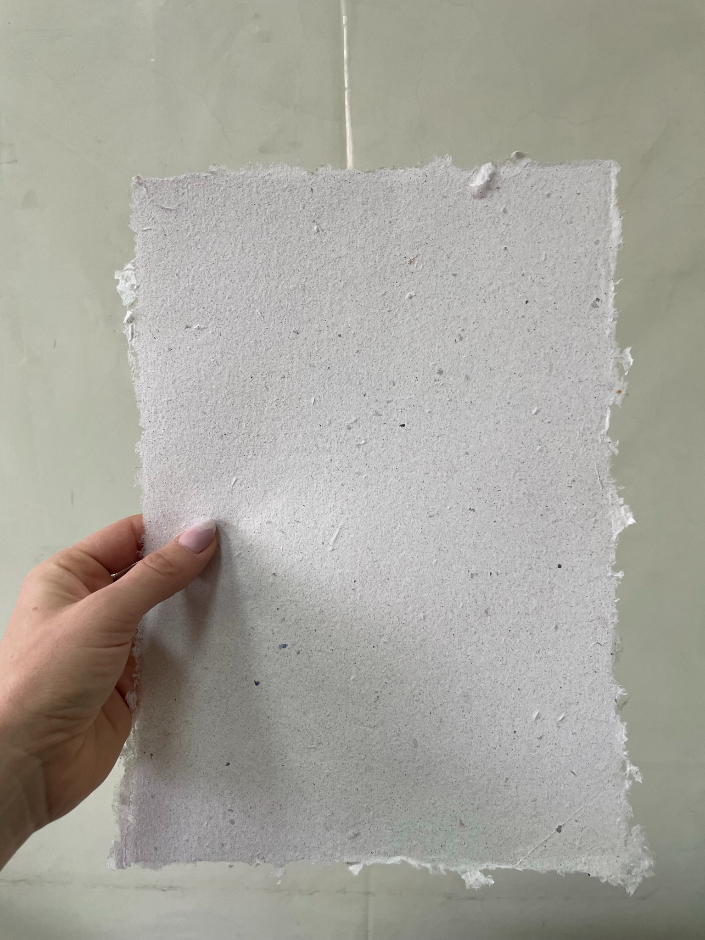
In what ways does the Zadrugarstvo Association contribute to the development of philanthropy in Serbia?
Tamara: It is in the public interest that there is a social enterprise in Kragujevac where people with disabilities will have the opportunity for job training, advancement, and improvement of already existing skills, as well as further engagement through several different activities. The concrete change is reflected in the comprehensive goal of the program - adults with disabilities are trained for independent living, which is also achieved by preventing institutionalization. And besides working directly with our users, we are extremely active in promoting the idea of social entrepreneurship and the circular economy. We want to use our example to influence changes related to their right to work, as well as to overcome prejudices and influence the awareness of our society.
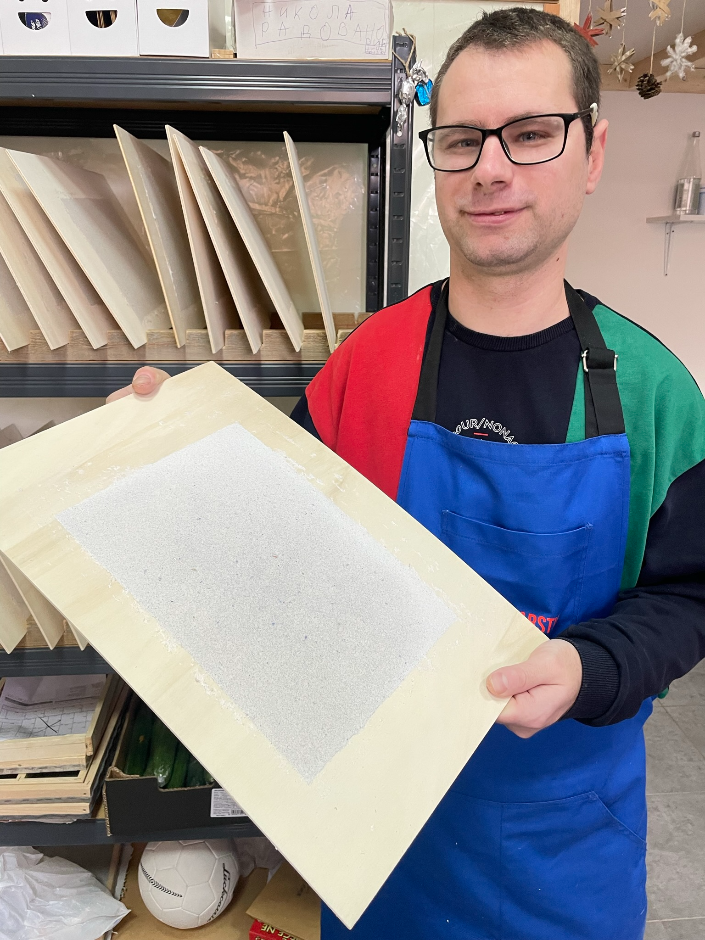
What are the biggest challenges you face at work?
Tamara: Zadrugarstvo team often encounters challenges on the way to improving the position of people with disabilities. Among them, the problem of providing financial resources necessary for the work of the Association stands out most often. The support of the local community and institutions is crucial to start social enterprises. For individual programs to be visible, regional networking of the civil sector that deals with similar topics is also necessary, as well as greater interest from the local media.
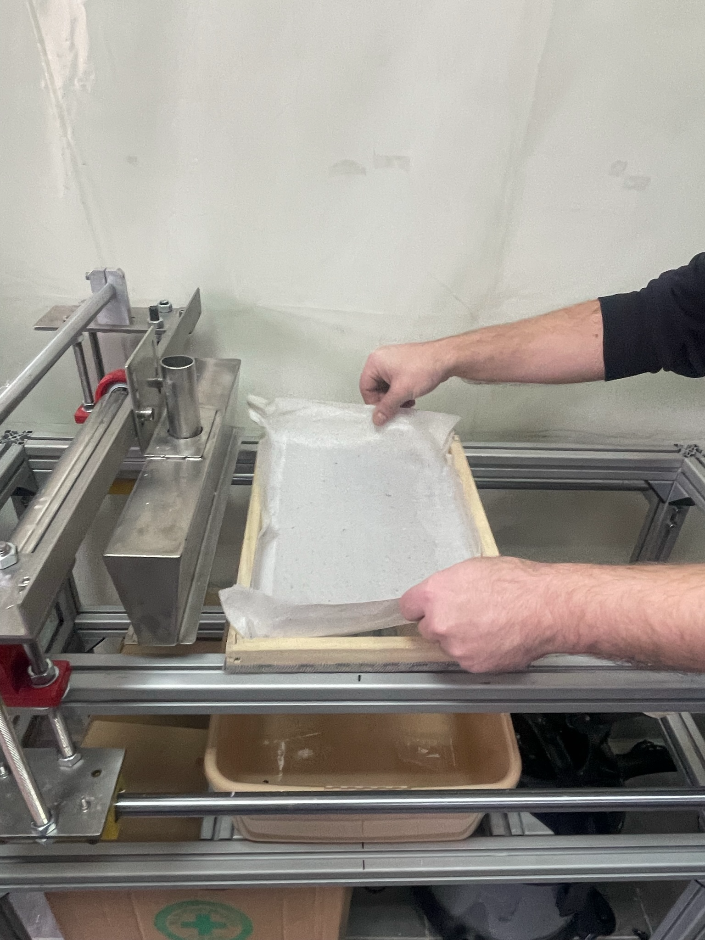
What are the most significant successes you have achieved in your work so far, and what do you still want to achieve?
Katarina: I find that the biggest success so far is the physical development of our users in the previous four months. In the first month of the workshop, they mastered the process of recycling - cleaning, sorting, and shredding the packs, and now they are completely independent in the production process of obtaining a new paper. They have come a long way in the previous four months of the workshop, and we can't wait for them to surprise us with new skills in the future!
Ana: The initiative's success is reflected in training users for independent living and their social integration through job training. Persons with developmental disabilities must have the opportunity to earn money and advance in their lives. I consider the community's growing interest in our program a great success!
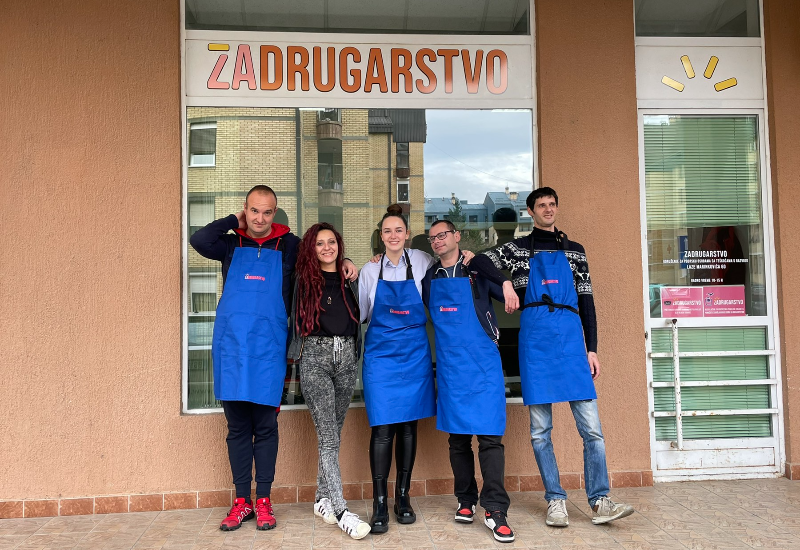

Leave a comment